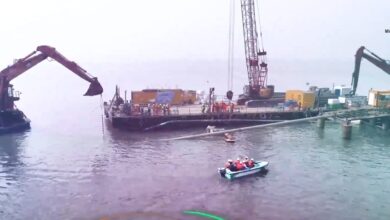Government Strengthens LPG Subsidy Transfers Through PAHAL and Aadhaar Authentication: Hardeep Singh Puri
Over 4 Crore Duplicate LPG Connections Deactivated to Curb Misuse

The Government of India has significantly strengthened its LPG distribution and subsidy mechanism through a combination of digital verification tools, direct benefit transfer schemes, and stringent regulatory measures. In a written reply to a Starred Question in the Rajya Sabha, Minister of Petroleum and Natural Gas, Hardeep Singh Puri highlighted key reforms that have enhanced transparency, efficiency, and inclusivity in LPG subsidy transfers.
One of the major milestones in this transformation is the success of the PAHAL (Direct Benefit Transfer for LPG – DBTL) scheme, which has enabled the direct transfer of subsidies into consumer bank accounts. As of July 1, 2025, the government has deactivated or suspended over 4.08 crore duplicate, fake, or inactive LPG connections, effectively curbing the diversion of subsidised cylinders for commercial use.
To ensure genuine beneficiaries continue to receive their entitlements, the government has undertaken extensive Aadhaar-based biometric authentication of consumers, especially under the Pradhan Mantri Ujjwala Yojana (PMUY). As of the latest update, 67% of existing PMUY consumers have undergone biometric Aadhaar verification, while all new PMUY connections are now authenticated at the time of release.
Reforms for Transparency and Accountability
The LPG subsidy distribution has been further streamlined using a Common LPG Database Platform (CLDP) that flags duplicate accounts based on Aadhaar, bank account details, ration cards, and other identifiers. A Standard Operating Procedure (SOP) issued in January 2025 has led to the removal of approximately 12,000 inactive PMUY connections that had not taken any refills since installation.
The government is also working to minimise transaction failures related to subsidy transfers. These failures are often caused by issues like Aadhaar deseeding, inactive Aadhaar numbers, or closed bank accounts. Focused efforts to increase compliance have led to 92.44% of active LPG consumers and 86.78% of DBTL beneficiaries becoming Aadhaar Transfer Compliant.
New Consumer-Centric Measures
In a bid to improve consumer experience, Oil Marketing Companies (OMCs) have introduced a nationwide IVRS/SMS-based refill booking system. Consumers now receive real-time SMS updates at each stage—booking, billing, and delivery—enabling them to track their orders. The introduction of a Delivery Authentication Code (DAC) further ensures that refills reach the correct households by requiring consumers to share the DAC with delivery personnel.
To curb malpractice, regular and surprise inspections are being carried out by field officers and various enforcement wings including Vigilance, Anti-Adulteration Cells, and Quality Assurance teams. Distributors found violating norms are penalised under the Marketing Discipline Guidelines or the Liquefied Petroleum Gas (Regulation of Supply and Distribution) Order, 2000.
Public Feedback and System Efficiency
According to a third-party evaluation conducted by the Research and Development Initiative (RDI), over 90% of respondents expressed satisfaction with the PAHAL scheme’s subsidy reimbursement mechanism. The study recommended improved grievance redressal systems, more targeted subsidy frameworks, and stronger safety awareness campaigns.
In FY 2024–25, around 194 crore LPG refills were delivered nationwide, with complaints received for only 0.08% of deliveries, mostly related to subsidy delays or non-delivery — a testament to the system’s operational efficiency.
Consumers can now raise queries or lodge complaints through a wide range of platforms, including:
- Toll-free helpline: 1800 2333 555
- OMCs’ mobile apps and websites
- CPGRAMS (Centralised Public Grievance Redress and Monitoring System)
- Social media, chatbots, WhatsApp
- Helpline 1906 for gas leak or accident-related emergencies
The comprehensive reforms and technological interventions introduced by the government are not only curbing misuse but also reinforcing India’s commitment to delivering essential services with transparency and accountability.




